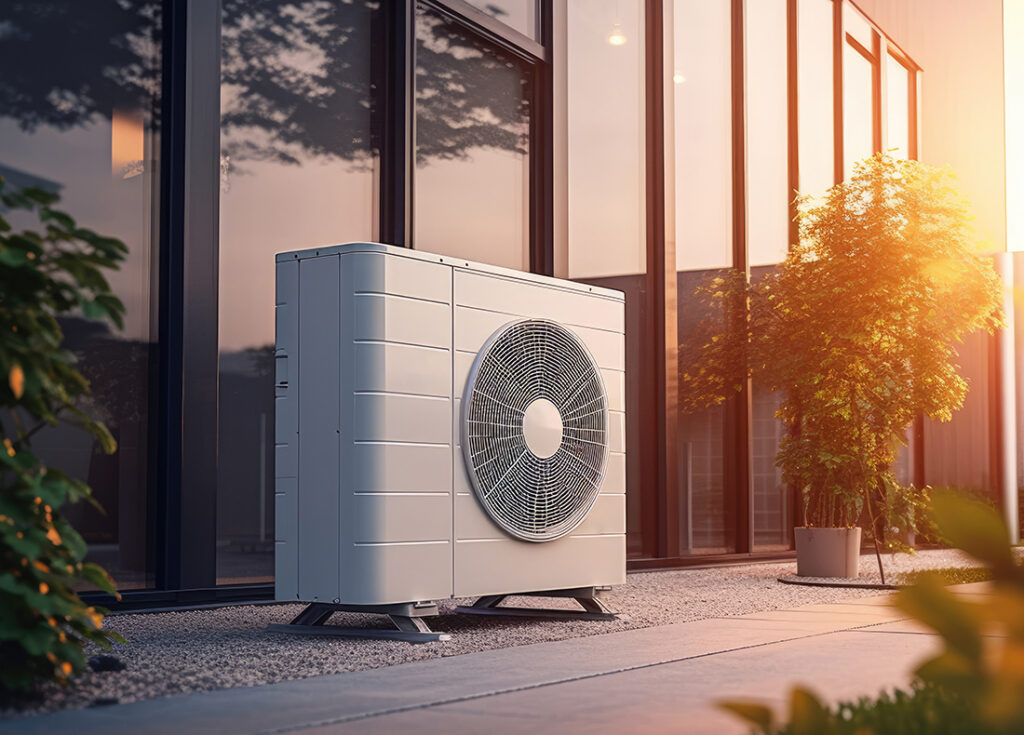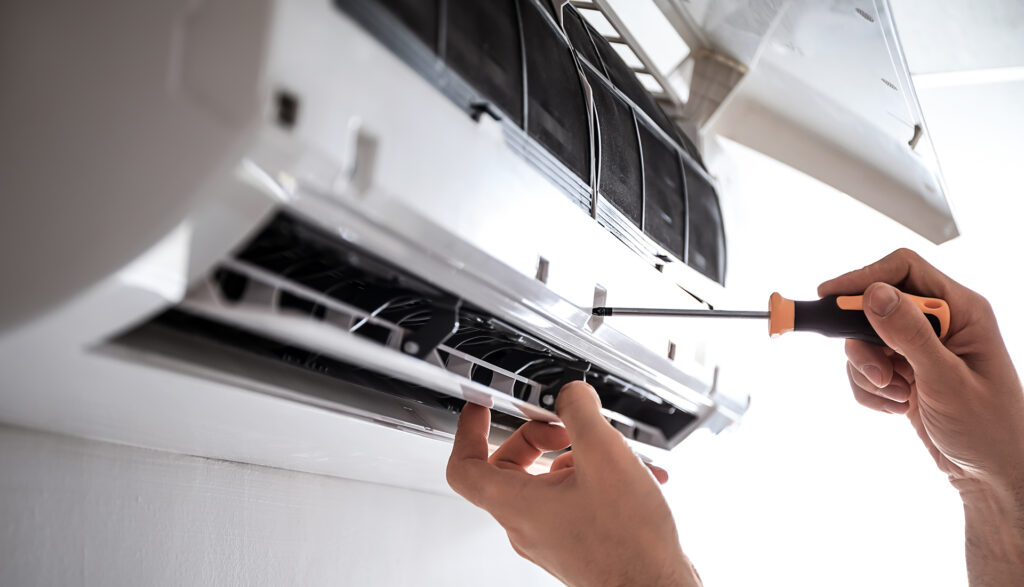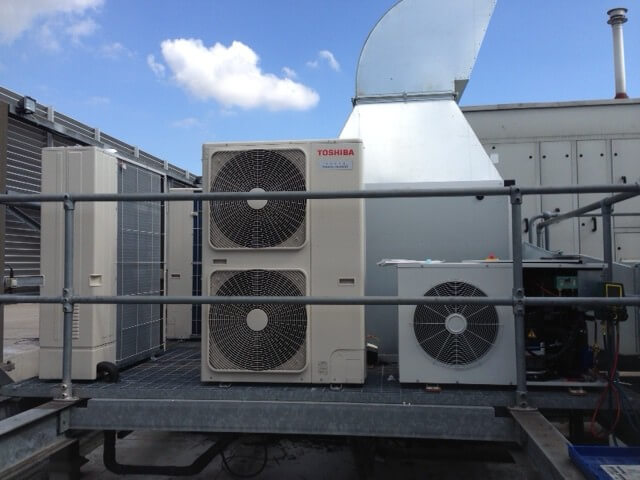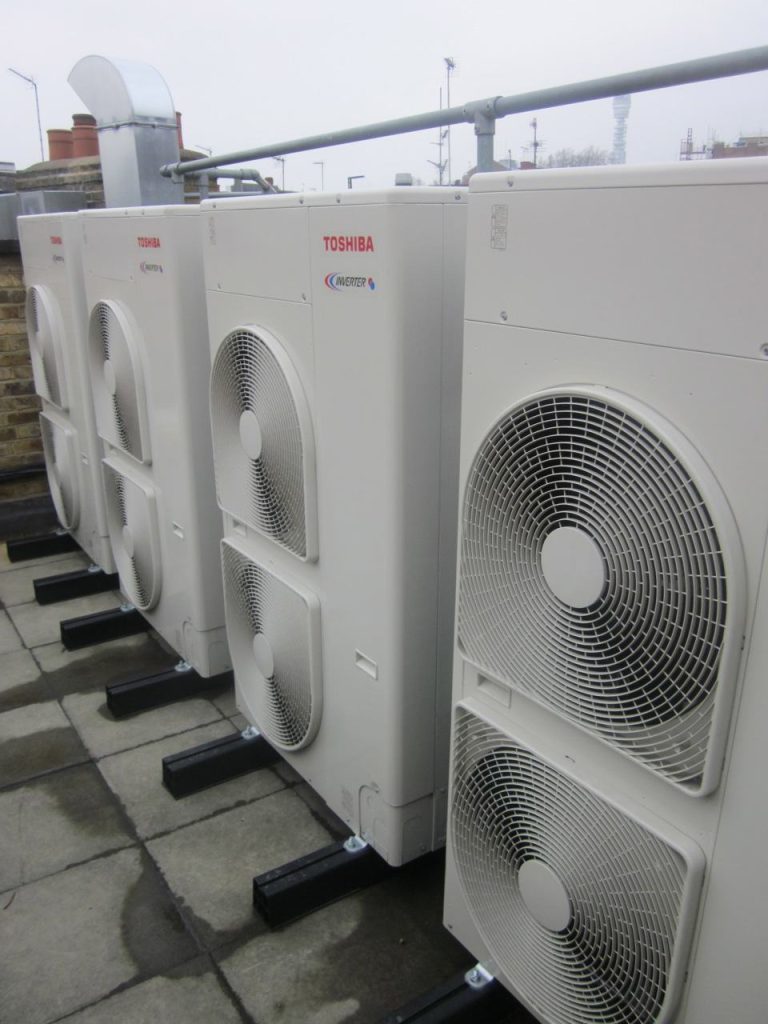Ensuring Your HVAC Is Energy Efficient
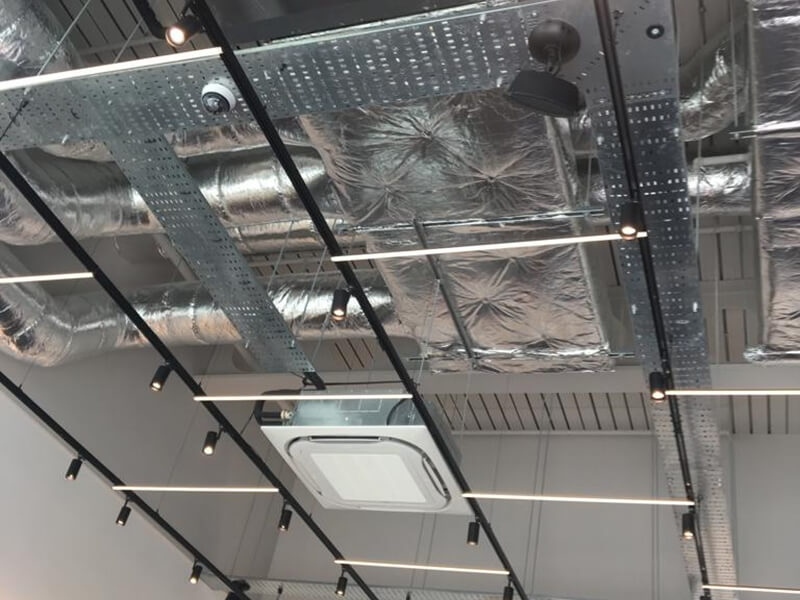
Estimated reading time 10 minutes
Minimising the amount of energy your business uses will always be important in terms of saving money and making your business more efficient. Today, there’s never been a better time to look at the energy efficiency of your heating, ventilation, and air conditioning (HVAC) system given the increase in energy prices and the issue of global warning.
How Much Energy Do HVACs Use In The UK?
There have been a number of studies looking at the energy usage of HVACs in the UK.
One such study “Study on Energy Use by Air-Conditioning: Final Report”, carried out in 2016 by the Building Research Establishment (BRE) looked at offices and retail environments and analysed a number of factors including air conditioning inspection reports and energy performance certificates, reviewing air conditioning trends and advancements in technology and the existing requirement for heating, ventilation and air conditioning.
The study’s aim was to understand UK electricity consumption by air conditioning in non-domestic buildings; especially that used to support the cooling function (rather than air handling). It found that 10% of all electricity used in the UK was used for air conditioning.
A paper published in 2021 by the Department for Business, Energy and Industrial Strategy (BEIS) “Cooling in the UK” found that offices and the retail sector were still the highest consumers of energy for cooling and humidification across all UK sectors. The office sector accounted for 51.2% of which private offices accounted for 44% of total consumption. Next was the retail sector at 18.8%.
Seasonal Energy Efficiency Ratio (SEER) and Coefficient of Performance (SCOP)
An HVACs energy efficiency is measured by its seasonal efficiency. Seasonal efficiency is regulated by the UK’s Department for Business, Energy & Industrial Strategy and Office for Product Safety and Standards guidance for manufacturers, their authorised representatives and importers by “Regulations: ecodesign of energy-consuming products”, underpinned by the Ecodesign for Energy-Related Products Regulations 2010 (as amended).
Seasonal efficiency incorporates two ratings: the Seasonal Energy Efficiency Ratio (SEER) value in cooling and the Seasonal Coefficient of Performance (SCOP) value in heating. The SEER and SCOP measure an air conditioning systems annual energy consumption and its efficiency day-to-day. The higher the seasonal efficiency rating is the more efficient your HVAC is.
What Factors Affect HVAC Efficiency?
Heating, ventilation and air conditioning systems are like any other piece of equipment in that there are a number of factors which determine how much energy your they use and how energy efficiency they are. These include:
- The design and layout of your building.
- The work being done within the building.
- The equipment within the building which may contribute to the heat generated.
- The required indoor temperature.
- Whether you have a thermostat or control system installed to control operating times and to maintain heating or cooling where its needed.
- The make and model of the HVAC.
- The design of your HVAC system.
- The location of your system.
- The number and size of the units.
Issues In Poor HVAC Energy Efficiency
The BRE report previously mentioned in this article, highlights a number of issues around poor HVAC energy efficiency:
- Poor or imperfect operation, maintenance and control of systems.
- Systems either too small or too large for the business premises.
- Clear evidence of air conditioning operating whilst buildings are unoccupied e.g., at night or over the weekend.
- System inspection reports providing only generic recommendations.
- Recommendations for improvement not being adopted as they are too generic.
The report explains that “while 82% of systems were reported to be “well maintained by competent staff”, 65% of these had specific recommendations that related to maintenance issues, suggesting that the overall assessment may have related to the existence of a maintenance contract rather than to the quality of its implementation.”
It goes onto say “the majority of inspections were of split systems, most of which were in retail premises, but just over 50% of the cooling capacity was in large systems in offices. 44% were assessed as being “correctly sized” (relative to rules of thumb), with equal proportions being over- and under-sized. F-gas reports were only available for about 20% of the systems.”
The report analysed data from “a sample of monitored offices” and saw evidence that “77% of the energy used for cooling was in systems that exceeded the benchmark “typical” consumption per unit floor area. There was some evidence of systems operating at times when buildings were (claimed to be) unoccupied.”
BRE also looked at Energy Performance Certificates (EPCs) and found that “In the EPC sample of 490 buildings, a total of 229 cooling related recommendations were identified. The vast majority (98%) of cooling related recommendations in the sample EPCs were automatically generated; of these, 84% are a recommendation to investigate the efficiency of the chiller identified, regardless of whether there is any potential for improvement. This recommendation is the most frequent because it is automatically generated whenever a default value is entered into the EPC calculation.”
Making HVAC Energy Efficiency Savings
All levels of design, installation, maintenance and training in heating, ventilation and air conditioning systems need to play a role in making an HVAC system as energy efficient as possible. There are numerous ways to ensure your HVAC is working as efficiently as possible including:
The Design An HVAC System
There are a number of factors to consider when it comes to designing an HVAC system. The choices made will control how efficient the system will be. It’s important to determine the heating requirements throughout a building. This is calculated by the size of the building, the number of people occupying the building and the business’s purpose. When looking at the size of the HVAC system required, part-load performance of the HVAC needs to be considered. However, it’s important to remember that HVAC systems only operate at their rated efficiency when they are working at their maximum output which rarely occurs. As a consequence unless a load estimation program is employed the HVAC design may overestimate the required system size.
Where any ductwork is installed, duct sizing, ensuring any connections are properly sealed, having insulation, supporting bends to prevent sagging or ductwork compression need to be taken into consideration for the system to maintain its efficiency.
It’s also vital that any design should allow for future expansion of the system or the need to add additional equipment without compromising efficiency.
HVAC Energy Performance Certificates and System Inspections
Anyone who manages or controls a commercial air conditioning system with an effective rated output of more than 12kW (including systems consisting of individual units which are less than 12kW, but whose combined effective rated output is more than 12kW) is required by UK law under The Energy Performance of Buildings (England and Wales) (Amendment) Regulations 2020 as amended in 2020 (the EPB regulations) to have their system inspected, no more than 5 years apart by an accredited air conditioning energy assessor who can look for ways to improve efficiency, reduce energy consumption, reduce operating costs and reduce carbon emissions.
New HVAC installations or where there have been changes to the HVAC system e.g., the modification or replacement of ductwork or any part of an HVAC system in a building that is 500 square metres of habitable space or more require an Energy Performance Certificate (EPC). In order to obtain an EPC, an air conditioning system needs to meet a list of requirements which are set out in the Energy Performance of Building Regulations.
Ensuring Your HVAC Is The Right Size
When it comes to your HVAC system size does matter. Having the right size air conditioning system is important when it comes to overall performance and efficiency.
If you have an HVAC system that’s too small the units will have to work harder and longer to heat and cool your premises which is inefficient and will increase your energy costs.
If your system is too big for the floor space it may short cycle where the system starts up and shuts down in bursts as it tries to maintain the right temperature and humidity. Short cycling can lead to major system issues as the compressor and fan are subject to more wear and tear then an efficient, correctly sized HVAC system would normally be.
Installing Programmable Control Systems
An efficient HVAC system provides just the right amount of cooling, heating and humidity to a building while using the minimum amount of energy. Once the right conditions have been met the HVAC then works to maintain this while minimising the amount of energy it utilises. By installing a programmable control system and thermostats you can take full control of the system ensuring the right conditions are met throughout your business premises.
Having a programmable system also allows you to take control of the HVAC even when you’re not present and need to adjust or close down the system as required. Based on the BRE report being able to tell your HVAC to shut down or reduce the temperature when the building is unoccupied will also result in energy efficiency and savings.
Taking control, a step further you can also optimise your system through the use of programmable logic controllers (PLCs) which can manage changes automatically based on real-time data and an understanding of what’s required in any given set of circumstances. Estimates suggest that installing an automatic HVAC optimisation control system can save up to 25% on energy costs.
Performing Planned Preventative Maintenance for Better HVAC Efficiency
HVACs need to be maintained. Without maintenance they are just like any other complex system, they’ll will stop functioning as efficiently as they should and may even start to breakdown.
Planned preventative HVAC maintenance is a wise investment which will help to ensure your system continues to run smoothly all year round. Preventative maintenance costs should be weighed against the cost of repairing problems, which if not detected early enough, can lead to catastrophic repairs, as one part of the system break down and impacts another. The downtime your business will suffer should also be factored in if your system isn’t able to maintain the right temperature or breaks down.
Preventative maintenance tends to cost a great deal less over the lifetime of the system when compared to the costs involved when an HVAC system starts to develop faults. By maintaining your equipment on a “preventative” basis you are dealing with issues before they arise and before they can cause damage to your system as a whole.
Talk to a Professional M&E Contractor
When it comes to HVAC systems it’s important to involve a professional M&E contractor as early as possible in the process. Given the complexity of an HVAC system and the many regulations that must be adhered to its important to ensure you’re getting the right advice and working with professionals who understand how to design, install and maintain HVACs.
Synecore, M&E Contractors For Heating, Ventilation and Air Conditioning
Synecore are M&E contractors and approved installers of the industry’s leading air conditioning.
Working for clients across Kent, London, and the rest of the UK, we supply top of the range hearing, ventilation and air conditioning brand names, including Daikin, Toshiba and Mitsubishi to office developments, hotels, restaurants, retail, and large commercial premises. Whether you require single split systems or large multi VRV/VRF air conditioning systems, we will provide you with a sustainable and long-lasting cooling and heating solution.
Synecore also offer air conditioning planned preventative maintenance packages to suit your business and the size of your premises. As part of the air conditioning service, you will also receive scheduled visits throughout the year to keep your system efficient and F-gas compliant.
If you’re looking to install new air conditioning or commercial refrigeration or to setup a maintenance contract contact our team or call on 01795 509 509. We’ll talk you through your options and provide you with expert advice for your business.
